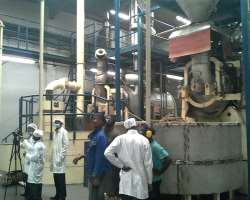Occupational Safety And Health—A Culture For Organisations

Health is a state of complete physical, mental and social well-being and not merely the absence of disease or infirmity – World Health Organisation.
A culture of prevention on occupational safety and health can be relevant for moral, legal and financial reasons. It is the duty of all organisations that care to ensure that employees and any other person who may be affected by organisation’s undertakings remain safe all the time. Moral duties are protection of employees’ lives and health. Legal reasons are the preventative, punitive and compensatory effects of laws that protect workers’ safety and health.
Occupational Safety and Health (OSH) also referred to as Occupational Health and Safety (OHS) is a cross-disciplinary area concerned with protecting the safety, health and welfare of people engaged in work for employment. The goal of OSH programs is to foster a safe and healthy work environment, and OSH may protect co-workers, family members, employers and customers who might be affected by the workplace environment.
International Labour Organisation in 2003declared April 28 as World Day for safety and Health at Work, so as to promote the prevention of occupational accidents and diseases globally. The day is set so as to raise awareness with the intention of focusing international attention on emerging trends in the field of occupational safety and health, and on the magnitude of work-related injuries, diseases and fatalities worldwide.
Relatively, employers ensure that the working environment is safe and healthy, while employees ensure their work safety and protection, and not to endanger others, to know their rights, and to participate in the implementation of preventive measures
Work provides many economic and other benefits, and is one of the most important determinants of a person’s health; however, a wide spectrum of workplace hazards also presents risks to the health and safety of people at work. A factor in the work process that adversely affects the health and performance of the worker, and under certain conditions can lead to an occupational disease is called occupational hazard. Occupational Hazard can cause a decline in worker efficiency and give rise to acute poisoning or diseases, or increase general morbidity and produce long term negative effects on heredity. These hazards are uncomfortable working positions, visual and auditory stress and heavy physical labour, dust, poor lighting and ventilation, and the increased risk of traumatism.
Emerging occupational risks are caused by either technical innovation or social/organizational change such as new working conditions for example, work intensity from downsizing, higher workloads; new technologies and production processes for example nanotechnology; and emerging forms of employment for example outsourcing, temporary contracts.
The 2015 theme for World Day for Safety and Health at Work is Join in Building a Culture of Prevention on Occupational Safety and Health, and employers and employees are urged to be responsible for stopping deaths and injuries at work. It is the responsibility of government to provide infrastructure, services and set regulations so as to ensure that workers remain employable and businesses flourish. This includes the development of a national policy and program, and a system of inspection to enforce compliance with occupational safety and, health legislation and policy.
Anthony Ajegwu
A Humanitarian Activist writes from Lagos
